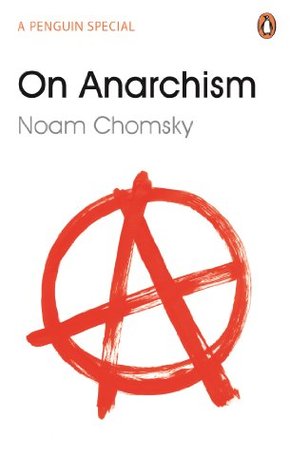More on this book
Community
Kindle Notes & Highlights
democracy is severely limited when the industrial system is controlled by any form of autocratic elite, whether of owners, managers and technocrats, a “vanguard” party, or a state bureaucracy.
The note references in this chapter were left intact to match the original note numbering. The editors’ explanatory notes can be found online at understandingpower.com/chap6.htm.
Yes, but in the eighteenth century it would have been hard to find a working model of a political democracy—that didn’t prove it couldn’t exist. By the nineteenth century, it did exist. Unless you think that human history is over, it’s not an argument to say “it’s not around.” You go back two hundred years, it was hard to imagine slavery being abolished.
The core of the anarchist tradition, as I understand it, is that power is always illegitimate, unless it proves itself to be legitimate. So the burden of proof is always on those who claim that some authoritarian hierarchic relation is legitimate. If they can’t prove it, then it should be dismantled.
It must, needless to say, be stressed that social action cannot await a firmly established theory of man and society, nor can the validity of the latter be determined by our hopes and moral judgments. The two—speculation and action—must progress as best they can, looking forward to the day when theoretical inquiry will provide a firm guide to the unending, often grim, but never hopeless struggle for freedom and social justice.
Actually, it was the rich farmer as well who sought protection from the Communists, whom Borkenau describes as constituting the extreme right wing of the Republican forces.
In general, the party, which had been insignificant before the revolution, “gave the urban and rural middle classes a powerful access of life and vigour” as it defended them from the revolutionary forces (Bolloten, Grand Camouflage, p. 86).
He describes how the expropriations, “accomplished as the result of spontaneous action on the part of workers and against the will of the Bolsheviks,” were reluctantly legalized by Lenin months later and then placed under central party control.
That the Communists withheld arms from the Aragon front seems established beyond question, and it can hardly be doubted that the motivation was political.
Of some interest, in this connection, is the recent discovery of an unpublished Churchill essay written in March 1939—six months after Munich—in which he said that England “would welcome and aid a genuine Hitler of peace and toleration” (see New York Times, December 12, 1965).
All the revolutionary forces of Catalonia have united in a program of Syndicalist-Socialist character … Anarcho-Syndicalism, hitherto so despised, has revealed itself as a great constructive force.
The irresponsible left-wing elements had not been given arms but had seized them, thus preventing an immediate Franco victory.


